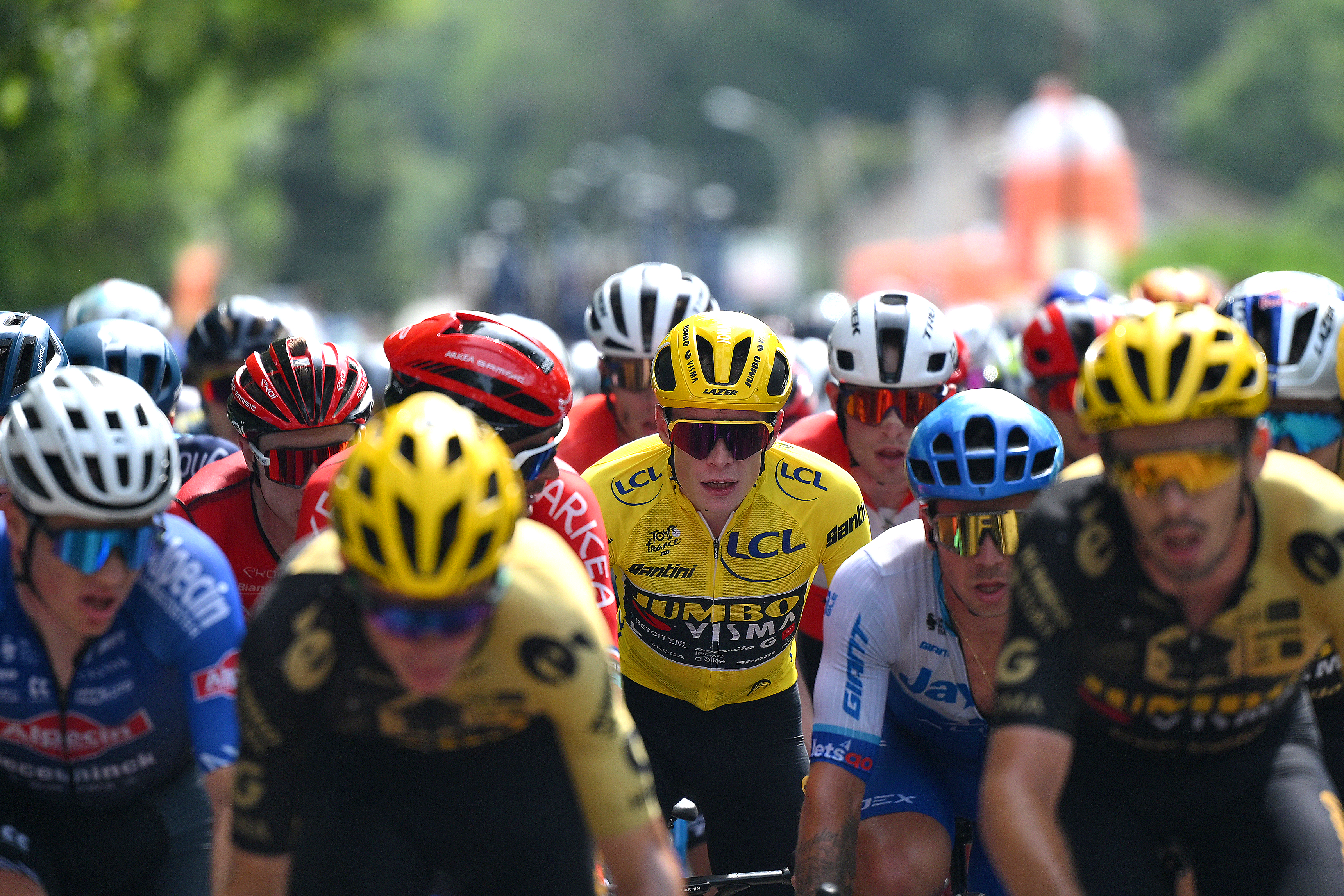I watched all 320 minutes of Netflix's Tour de France: Unchained season two, and it's a thrilling must-see
With added Tadej Pogačar and Mark Cavendish, this year's version is appointment viewing

Thrilling television, with a winning formula perfected. Great insight into the biggest bike race of them all. It's a must watch.
-
+
Unparalleled access to the teams involved
-
+
Tells multiple stories really well
-
+
Tadej Pogačar is in it this year
-
-
Might be too simple for the biggest bike fan
-
-
Lots of teams not involved, reducing stories
You can trust Cycling Weekly.

It opens, as it did last year, with hyperbole. "Everybody should kill somebody to win a stage," Patrick Lefevere says, in quite bad taste. "Accidents happen, you'd better get used to it," Jasper Philipsen adds. There is the footage of crashes, of near misses. We are told that the Tour de France is the toughest thing ever, that it is everything, that it means more.
Welcome to season two of Tour de France: Unchained, from Netflix. So far, so similar to the first year. I liked the first season, without being blown away. It was an interesting watch, without feeling like something that had to be seen. However, season two builds on a solid format and turns it into something I really think all cycling fans and beyond should watch. It is gripping.
Having watched all eight episodes this week, I feel like I understand the 2023 Tour more than I did last year - and I was at the race every day. It's emotional as well as thrilling, with the (then-recent) death of Gino Mäder very much hanging over the whole programme; hence why Lefevere's opening quotes are so poor.
Despite that opening salvo of hyperbole, the series does not continue to patronise the expert cycling fan, but also brings the newbie along at the same time. You do not need to know the intricacies of bike racing, or even any idea about what happened at last year's Tour to follow. In fact, it might be better if you don't.
To cram 21 stages and all the stories from the Tour requires quite a lot of editing, but Unchained's creators manage to do this deftly, with most of the things of note covered.
The editing is helped by the fact that Netflix only has access to 10 of the 18 teams at the race - with the addition of UAE Team Emirates and Tadej Pogačar and Astana Qazaqstan and Mark Cavendish elevating the whole thing - so moments which do not involve the filmed teams are essentially removed. However, given these 10 teams won 17 of the 21 stages on offer, plus the overall, there is a lot to fit in.
The best thing about the documentary is the level of access afforded to the cameras. While fans and journalists can attempt to form a picture of what is going on inside teams, it is never the full account, which this appears to do better. There are moments which I had either missed or forgotten, and recaps of entire stages which I missed because I was in a car driving from a stage start to a finish. This is the insight that makes it really worth it.
The latest race content, interviews, features, reviews and expert buying guides, direct to your inbox!
Also, any footage of cyclists away from the race is great to see. It really humanises them, and adds to what we know of them as people. We see Ben O'Connor (AG2R Citroën) training, as well as Pogačar at home in Monaco, and it's a fresh insight. If only Jonas Vingegaard (Visma-Lease a Bike) would permit the same, we might understand him more.
A few things to note. Jasper Philipsen (Alpecin-Deceuninck) is painted very much as a kind of villain in a few of the episodes. The Belgian, and his team, are painted as a ruthless winning machine, with much made of complaints about his sprinting style. There are also narratives around intra-team beef in both AG2R Citroën and Ineos Grenadiers, with O'Connor temporarily falling out with his squad, and Tom Pidcock also briefly getting annoyed at his situation.
Visma-Lease a Bike and Vingegaard are also interesting, with the Dane's victory very much covered, but then quickly overshadowed by doping questions, which are answered. Cycling can't get away from its past, but the doc's makers have put it front and centre. Richard Plugge's cameo as a supervillain is also odd, but a good narrative, I suppose.
I'm not sure about the timeline, with the episodes not coming in chronological order; while it is difficult to cover all the different storylines at the same time, it feels odd to jump ahead one episode on the GC battle, only to go back in time for sprints or whatever later.
Also, many minor characters go unexplained. This must be a time-saving measure, but Ant McCrossan and Nicolas Roche (voices of the Tour's international feed) feature a lot, and are never referenced by name. Dave Brailsford is a big character in the episode that concentrates on Ineos Grenadiers, but to the uninitiated, isn't properly justified. I also don't love how the tenses work throughout, with some suspension of disbelief required to make it work. These are small grumbles, though.
It is a really beautiful piece of television, with Netflix's cameras capturing the racing in much better quality than the live feed, understandably, so it gives you a second chance to watch some of the best bike riders in the prettiest places.
My favourite bit is the silence that comes on some stages, away from the fans. Without commentary over the top, on the Puy de Dôme and elsewhere, the riders are in complete silence, just them and their bike. It's delightful.

Adam is Cycling Weekly’s news editor – his greatest love is road racing but as long as he is cycling, he's happy. Before joining CW in 2021 he spent two years writing for Procycling. He's usually out and about on the roads of Bristol and its surrounds.
Before cycling took over his professional life, he covered ecclesiastical matters at the world’s largest Anglican newspaper and politics at Business Insider. Don't ask how that is related to riding bikes.